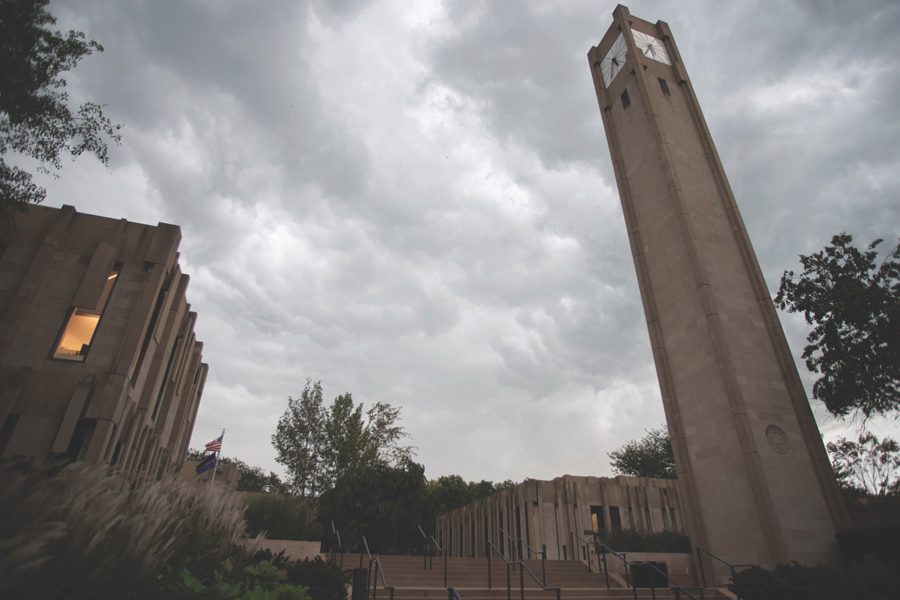Broad ‘endowment’ tax could be more costly for Northwestern than anticipated
Daily file photo by Colin Boyle
Rebecca Crown Center. A volatile market and deficit spending left the University’s endowment with less money than last year.
July 10, 2019
A tax on wealthy private universities could go after more of Northwestern’s income than previously thought.
Proposed regulations for the so-called “endowment tax” seek to enact a levy on a number of NU’s income sources, including loans and rentals of its facilities. The University could end up footing a higher bill than once expected while it seeks to close the gap of a multimillion dollar budget shortfall.
Republican lawmakers portrayed the measure as one that would tax the investment income earned from large college endowments. But draft regulations from the U.S. Treasury Department earlier this month indicated all college-owned assets are taxable, not just those from the endowment.
The financial impact on Northwestern is unclear. Craig Johnson, Northwestern’s vice president for business and finance, told The Daily earlier this year that the University had not paid the tax this past year, but expects to in the near future.
Johnson did not respond to a request for comment clarifying whether the University will pay the tax this upcoming year.
Endowments consist of money and other assets universities hold to invest and make future income for expenditures. Northwestern’s endowment value reached a record $11.08 billion this past fiscal year.
Schools with at least 500 tuition-paying students and an asset value of $500,000 per student will be responsible for the 1.4 percent excise tax. The Treasury Department said it expects 25 to 40 schools to pay the levy this upcoming year.
The measure is part of the 2017 Tax Cuts and Jobs Act, President Donald Trump’s signature tax law. Legislators included a provision that took aim at the nation’s largest college endowments, which critics say have grown exceedingly large while skirting taxes and raising tuition.
At Northwestern, students have pushed administrators to spend more of the endowment on things like financial resources for students, especially amid recent budget cuts.
The proposed regulations mirror existing rules regulating schools and nonprofits. Colleges will be able to exclude 1.5 percent of their asset value and other sources of income that relate directly to its educational mission.
For example, the tax will not affect income from student housing and the rentals of facilities that are at least 95 percent devoted to educational goals. Income from non-students renting dorms, however, will be subject to the tax.
Income from hospitals, alumni organizations, rentals of sports facilities, institutional loans and any other “net investment income” could be taxed as well.
Many higher education officials see the tax as unnecessary, and some see it as a political attack from Republicans, who have grown increasingly distrustful of colleges.
“It wasn’t well conceived and it’s created a mess,” Steven Bloom, director for government relations at the American Council on Education, told POLITICO.
“The regulations make it pretty clear that the tax will harm students and families by imposing a direct cost on the affected schools, and an indirect cost from the administrative burden that they’re going to have in complying with the tax,” he said.
The much-anticipated regulations clarified the law after some initial uncertainty and confusion, but university leaders across the country remain fearful that using a wider definition of investment income will drain universities’ resources.
The Treasury Department is seeking input from college administrators on the draft rules. It hopes to finalize the regulations later this year.
Correction: A previous version of this story misstated which university income can be taxed. Income generated from students living on campus will not be taxed, whereas income generated from non-students renting dorms can be taxed, not the other way around. The Daily regrets the error.
Email: aperez@u.northwestern.edu
Twitter: @_perezalan_
Email: cameroncook@u.northwestern.edu
Twitter: @cameron_e_cook



